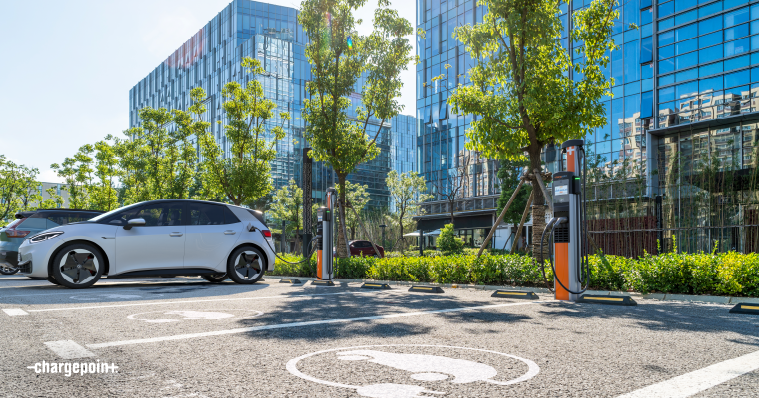
The European Union has set a goal to significantly reduce CO2 emissions from road transport. Within this aim, it has established rules that will effectively end the sale of new petrol and diesel cars and vans beginning in 2035 to ensure the transport sector can achieve carbon neutrality by 2050. This has led to the establishment of stringent EV charging infrastructure requirements for new buildings and those undergoing significant renovations.
What exactly are the EU EV charging requirements?
Although it’s not yet finalised and still requires formal approval by decision-makers, the EU's Energy Performance of Buildings Directive (EPBD) will require all EU member states to introduce policies requiring EV charging infrastructure targets in buildings that are newly constructed or undergoing major renovations.
Specifically, the EPBD dictates that:
- New and majorly renovated nonresidential commercial buildings with more than five parking spaces have at least one EV charging point for every five spaces or 50% of car parking spaces include precabling (conduits for electric cables) to facilitate the future installation of charging stations.
- By 1 Jan 2027, all nonresidential commercial buildings with more than 20 parking spaces have at least one EV charging point for every 10 spaces or 50% of car parking spaces include precabling (conduits for electric cables) to facilitate the future installation of charging stations.
- New and majorly renovated residential buildings with more than three parking spaces have 50% of car parking spaces with precabling (conduits for electric cables) to facilitate the future installation of charging stations and one EV charging point.
- Further, all EV charging points installed as part of the EPBD must be capable of smart charging.
- Whilst this directive is applicable across all EU member states, individual countries may have their own additional regulations in place.
Despite the highly specific construction standards, particularly with regard to property type, the advantage is clear — integrating EV charging infrastructure significantly enhances a property's appeal. It attracts a growing demographic of eco-conscious tenants while elevating the property's value. Moreover, the European Union, along with member states, provides financial incentives such as grants and tax reductions, to facilitate both developers and tenants in adopting these sustainable features.
EV charging incentives in the EU
The EU supports the transition to electric mobility with several incentives, which might include:
- Funding for the installation of EV charging points, which can cover a significant portion of the purchase and installation costs
- Grants specifically aimed at small and medium-sized enterprises for the upfront costs associated with EV charging infrastructure
Note, however, that these incentives usually come with certain conditions and cannot be used for work already mandated by EU regulations. Companies might also be eligible for various tax deductions or allowances for investments in EV charging infrastructure. Developers should also be aware that incentives are continually evolving, with some programs set to expire or change in the near future, so staying up to date with the latest information is crucial.
Let ChargePoint help you navigate regulations and incentives
Having a reliable EV charging partner is critical to ensure that you adhere to regulatory requirements and take advantage of available incentives and tax benefits. ChargePoint works with property investors, owners and operators to ensure a successful EV charging implementation every step of the way:
- Site design. Get expert advice on site design based on organisational and employee needs.
- Regulations and incentives. Receive guidance on meeting local building regulations and finding regional incentives to help pay for the implementation.
- Installation. Connect with local, ChargePoint-certified contractors who can work quickly to get the necessary infrastructure installed.
- Support. Count on proactive monitoring and maintenance as well as 24/7 driver support, freeing up your staff to focus on what they do best.
This blog post provides a high-level overview of the EU’s commercial real estate regulations and incentives. Details should be for informational purposes only and not interpreted as binding.



